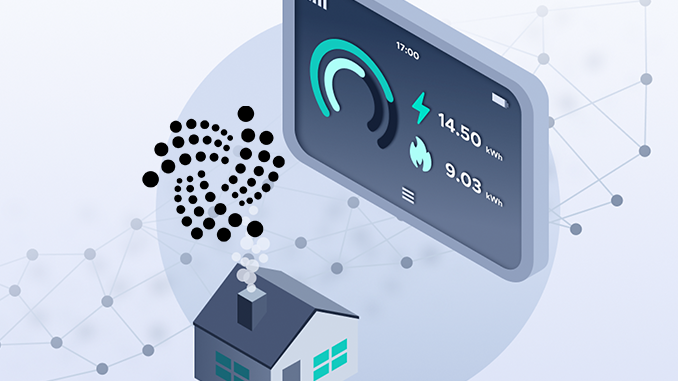
IOTA has been a cooperation partner in SUSEE (Secure Sensor Platforms for Smart Energy Networks) for about a year. Newly developed smart electricity meters are now being tested there in Osnabrück.
Despite all the anticipation in the IOTA community about the launch of the Mainnet for Shimmer (SMR), which is still expected in 2022, the original concept of IOTA is sometimes pushed into the background. IOTA started in 2016 with the idea of becoming the leading blockchain and cryptocurrency for the Internet of Things (IoT). So the latest blog post from the IOTA Foundation sparks interest, dedicated to the unveiling of a new smart electricity meter. An initial 25 such devices are currently being produced for extensive testing in Osnabrück, Germany. According to IOTA, mass production is subsequently targeted.
The project came about as part of SUSEE (Secure Sensor Platforms for Smart Energy Networks). The IOTA Foundation has been active there since late summer 2021, and SUSEE is funded by the German Ministry of Economics. When it comes to smart electricity meters, three challenges have been identified, it says: cost, data security and reliability. The EU estimates that the average cost of installing a smart electricity meter is around 200 euros, and compares this with cost savings of up to 270 euros a year. This is because instead of reading electricity meters manually, the new generation devices can transmit data to the electricity supplier independently.
This also makes it possible to manage electricity consumption efficiently. Cheaper household electricity at night, for example, invites people to run the washing machine then. IOTA points out that Germany has far-reaching legal regulations on data security. With IOTA Streams as a transmission channel, the requirements would be met. Streams as an IOTA module further scores with low data volume to be transmitted, which is important because the SUSEE electricity meters are to radio in the toll-free LoRaWAN (Long Range Wide Area Network), where capacities are limited. IOTA writes that it has succeeded for the first time in getting streams to work in a low-cost ESP32-C3 micro-controller.
Conclusion: SUSEE electricity meters with IOTA technology – soon to be mass-produced?
However, the IOTA Foundation is silent on how much the SUSEE electricity meters would cost if mass production were to start after the current pilot project. After all, with SWO Netz GmbH, SUSEE has Osnabrück’s power supply company on board, which could become the first customer for the smart electricity meters with IOTA technology. This is because experience from other countries shows: It is the electricity suppliers who recommend smart electricity meters to their customers and also implement the installation. So SUSEE and the IOTA Foundation will be called upon to find supraregional partners in order to really make their smart electricity meter a product that will be used in millions of German households.

Leave a Reply